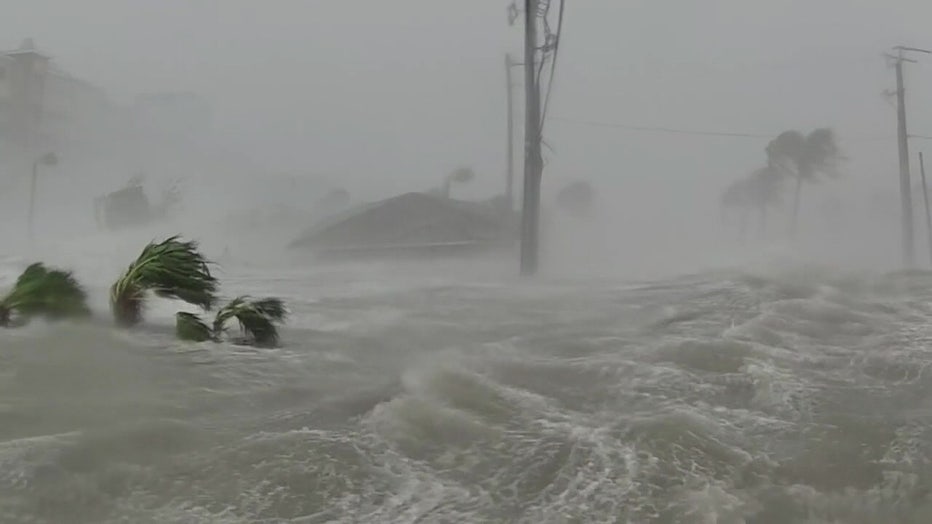Florida Medical Examiners Commission releases causes of reported Hurricane Ian deaths
TAMPA, Fla. - Nearly 100 deaths in Florida have been connected to Hurricane Ian, happening before, during, and after the storm made landfall. A report compiled by the Florida Medical Examiners Commission is shedding light on what led up to these deaths and where they happened.
While some of these details are difficult to hear, there are crucial lessons that can be learned in the report and dangers to consider next time a big storm approaches.
Ninety-four people lost their lives in Florida, so far, due to Hurricane Ian, according to the summary report. The majority were drownings in Lee County, but the death toll began before landfall.
MORE: Tampa police deploying more officers to North Port for Hurricane Ian relief
A man in Sarasota County fell off the roof while installing shutters. During the storm, a Manatee County woman went outside to smoke "when a gust of wind from the hurricane blew her off the porch, and she subsequently struck her head on an adjacent concrete step."
After the storm, a Hillsborough County motorcyclist crashed into a fallen tree. Another woman in Manatee County, dependent on oxygen, died after losing power.
A Polk County man doing yard cleanup died from exertion. Two men in Hardee County drowned when their cars were swept away by the river current.
The Florida Medical Examiners Commission summary contains victims' ages and counties, but it does not include names. Many were in their 70s, 80s, and 90s. While these details are not easy to hear, it's a sobering reminder that hurricane dangers span beyond wind and water.
READ: Hidden debris from Hurricane Ian lingers in waterways, causing boating dangers, police say
Elizabeth Dunn, a University of South Florida instructor on Global Disaster Management, Humanitarian Relief, and Homeland Security, said now is the time for all of us to reevaluate our plans before, during and after a storm.

"We're making sure that we're thinking about all those things within our plan and what we do if situations change at the last minute," Dunn said. "What options do we have to maybe get to a safe place? But also, knowing what your risks or your hazards are for your neighborhood or your home."
A loss of power, a failed generator, not enough food or clean water could be life-threatening.
"Just thinking about what would you do if your electricity is out? Is this something that could affect one of your family members?" Dunn said.
Post-storm, it's also important to consider the mental health impact on those around you. According to the report, two men in Lee County took their own lives after seeing the devastation.
RELATED: Crisis Center of Tampa Bay responds to drastic increase in calls after Hurricane Ian
HCA Florida Blake Hospital has seen emergency department visits increase 15-20% since Hurricane Ian for injuries related to storm cleanup, no power, and heat exhaustion.
"I would say we are seeing a lot more anxiety," said Dr. Scott Selph. "I would really stress for all of us to be a lot more in tune to our patients, because there are people who are depressed and at risk of harming themselves right now."
Emergency officials do their best to prepare us, but Dunn said the life-or-death decisions are in our hands.
"What can we do to make sure that we're making the right decision to evacuate if needed, or preparing our homes, and taking it seriously to have our hurricane preparedness kits and our plans and our communication plans all in place," Dunn said.

